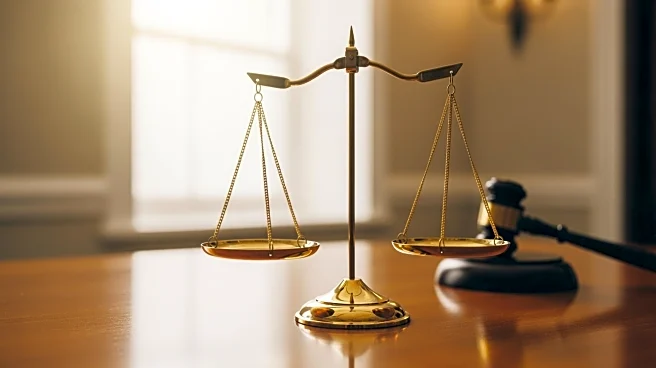What's Happening?
President Trump has issued a pardon for former Tennessee House Speaker Glen Casada and his former chief of staff, Cade Cothren, who were convicted of public corruption charges. Casada was sentenced to
three years in prison, while Cothren received a 2 1/2-year sentence. The charges stemmed from a scheme to secure taxpayer-funded mail business from lawmakers through a fictitious company, Phoenix Solutions. The White House justified the pardons by claiming the Biden administration's Justice Department over-prosecuted the individuals for what it described as a minor issue. The case involved constituent mailers billed at competitive prices, and the prosecution proceeded without complaints from legislators.
Why It's Important?
The pardons reflect President Trump's continued use of executive clemency to benefit political allies and public figures, raising concerns about the erosion of public integrity guardrails. This action follows a pattern of pardoning individuals involved in corruption scandals, which may impact public trust in the justice system and government accountability. The decision to pardon Casada and Cothren, despite their involvement in fraudulent activities, could signal a shift in how political corruption cases are handled, potentially undermining efforts to hold public officials accountable for abusing public trust.
What's Next?
The pardons may provoke reactions from political leaders and civil society groups concerned about the implications for public integrity and justice. There could be calls for legislative reforms to address the use of executive clemency in cases involving political corruption. Additionally, the pardons might influence future prosecutorial decisions and strategies in similar cases, as stakeholders assess the impact on public trust and government accountability.
Beyond the Headlines
The pardons raise ethical questions about the balance between executive power and judicial accountability. They highlight the potential for political influence in legal proceedings, which could affect the perception of fairness and impartiality in the justice system. Long-term, this development might contribute to a cultural shift in how political corruption is perceived and addressed, influencing public expectations of government transparency and integrity.










